Defining poetry:
-Archibald Macleish's "Ars Poetica"

Achibald MacLeish (May 7, 1892 - April 20, 1982) was an American poet, writer, and the Librarian of Congress. He is associated with the Modernist school of poetry. He received three Pulitzer Prizes for his work. MacLeish was born in Glencoe, lllinois. His father, Scottish born Andrew MacLeish, worked as a dry goods merchant. His mother, Martha (nee Hillard), was a college professor and had served as president of Rockford College. He grew up on an estate bordering Lake Michigan. He attented the Hotchkiss School from 1907 to 1911 before entering Yale University, where he majored in English, was elected to Phi Beta Kappa, and was selected for the Skull and Bones society. MacLeish 's early work was very traditionally modernist and accepted the contemporary modernist position holding that a poet was isolated from society. His most well- known poem, "Ars Poetica," contain a classic statement of the modernist aesthetic: "A poem should not mean / But he."
From Wikipedia, the free encyclopedia
-Marianne Moore’s "Poetry"
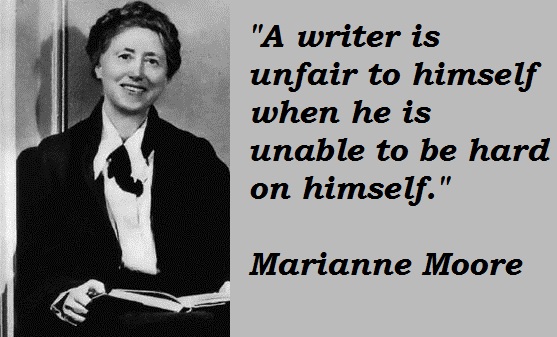
Marianne Craig Moore (November 15, 1887 - February 5, 1972) was an American Modernist poet, critic, translator, and editor. Her poetry is noted for formal innovation, precise diction, irony, and wit. Moore was born in Kirkwood, Missouri, in the manse of the Presbyterian church where her maternal grandfather, John Riddle Warner, served as pastor. Her parents separated before she was born after her father, John Milton Moore, a mechanical engineer and inventor, suffered a psychotic episode; Moore never met him. Moore's first professionally published poems appeared in The Egoist and Poetry in the spring of 1915. Harriet Monroe, the editor of the latter, would describe them in her biography as possessing "an elliptically musical profundity".
From Wikipedia, the free encyclopedia
William Shakespeare’s sonnet: "Shall I compare thee to a summer's day?"

Sonnet 18, often alternatively titled Shall I compare thee to a summer's day?, is one of the best- known of 154 sonnets written by the English playwright and poet William Shakespeare. Part of the Fair Youth sequence (which comprises sonnets 1- 126 in the accepted numbering stemming from the first edition in 1609), it is the first of the cycle after the opening sequence now described as the procreation sonnets. In the sonnet, the speaker compares his beloved to the summer season, and argues that his beloved is better. Scholars have found parallels within the poem to Ovid's Tristia and Amores, both of which have love themes. Sonnet 18 is written in the typical Shakespearean sonnet form, having 14 lines of iambic pentameter ending in a rhymed couplet.
From Wikipedia, the free encyclopedia
SONNET 18 "Shall I Compare Thee To Summer's Day
Narrative Poetry: Edward Arlington Robinson’s “Richard
Cory”
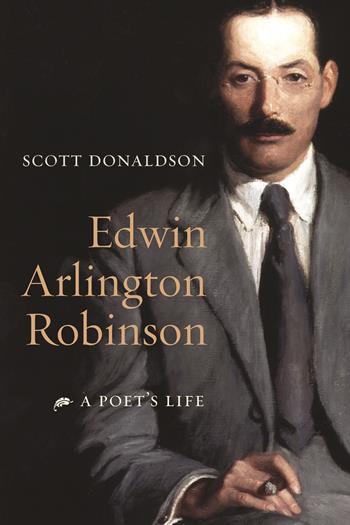
"Richard Cory" is a narrative poem written by Edwin Arlington Robinson. It was first published in 1897, as part of The Children of the Night, having been completed in July of that year; and it remains one of Robinson's most popular and anthologized poems. The poem describes a person who is wealthy, well educated, mannerly, admired by the people in his town. Despite all this, he takes his own life. The song "Richard Cory", written by Paul Simon and recorded by Simon & Garfunkel for their second studio album, Sounds of Silence, was based on this poem. The composition of the poem, while the United States economy was still suffering from the several depression of the Panic of 1893 and during which people often subsisted on day- old bread, alluded to in the poem's prominence of poverty and wealth, and foodstuffs.
From Wikipedia, the free encyclopedia
Lyric Poetry: William Wordsworth's "I wandered lonely as a cloud"

From Wikipedia, the free encyclopedia
The Dramatic Monologue: Bruce Springsteen's Nebraska

"Nebraska" is the title song of Bruce Springsteen's 1982 solo album. The stark, moody composition sets the tone for the LP, content of which consists mostly of songs about criminals and desperate people, accompanied only by acoustic guitar and harmonica. The song has been covered by other artists, including Steve Earle and Chrissie Hynde. "Nebraska" is sung as a first person narrative of Charles Starkweather, who along with his teenage girlfriend Caril Ann Fugate murdered 11 people over an eight- day period in 1958. Springsteen sings of 10 deaths, as Starkweather had already killed one man prior to their meeting.
From Wikipedia, the free encyclopedia
Bruce Springsteen- Nebraska (live &lyrics).
Shakespearean.

William Shakespearean (26 April 1564(baptised) - 23 April 1616) was an English poet, playwright, and actor, widely regarded as the greatest writer in the English language and the world's pre-eminent dramatist. He is often called England's national poet, and the "Bard of Avon". His extant works, including collaborations, consist of approximately 38 plays, 154 sonnets, two long narrative poems, and a few other verses, some of uncertain authorship. His plays have been translated into every major living language and are performed more often than those of an other playwright.
From Wikipedia, the free encyclopedia
Bartleby, the Scrivener.

"Bartleby, the Scrivener: A Story of Wall Street" is a short story by the American writer Herman Melville, first serialized anonymously in two parts in the November and December 1853 issues of Putnam's Magazine, and reprinted with minor textual alterations in his The Piazza Tales in 1856. A Wall Street lawyer hires a new clerk who- after an initial bout of hard work- refuses to make copy and any other task required of him, with the words "I would prefer not to." The lawyer cannot bring himself to remove Bartleby from his premises, and decides instead to move his office, but the new proprietor removes Bartleby to prison, where he perishes.
From Wikipedia, the free encyclopedia
Hyperbole.

Hyperbole is the use of exaggeration as a rhetorical device or figure of speech. In rhetoric, it is also sometimes known as auxesis (lit. "growth"). In poetry and oratory, it emphasizes, evokes strong feelings, and creates strong impressions. As a figure of speech, it is usually not meant to be taken literally. Hyperbole may also be used for instances of such exaggerations for emphasis or effect. Hyperboles are often used in casual speech as intensifiers, such as saying "the bag weighed a ton". Hyperbole makes the point that the speaker found the bag to be extremely heavy, although it was nothing like a literal ton. Understanding hyperboles and their use in context can further one's ability to understand the messages being sent from the speaker. It has been established that use of hyperboles relays emotions. Hyperbole can used in a form of humour, excitement; distress, and many other emotions, all depending on the context in which the speaker uses it.
From Wikipedia, the free encyclopedia
Raven.
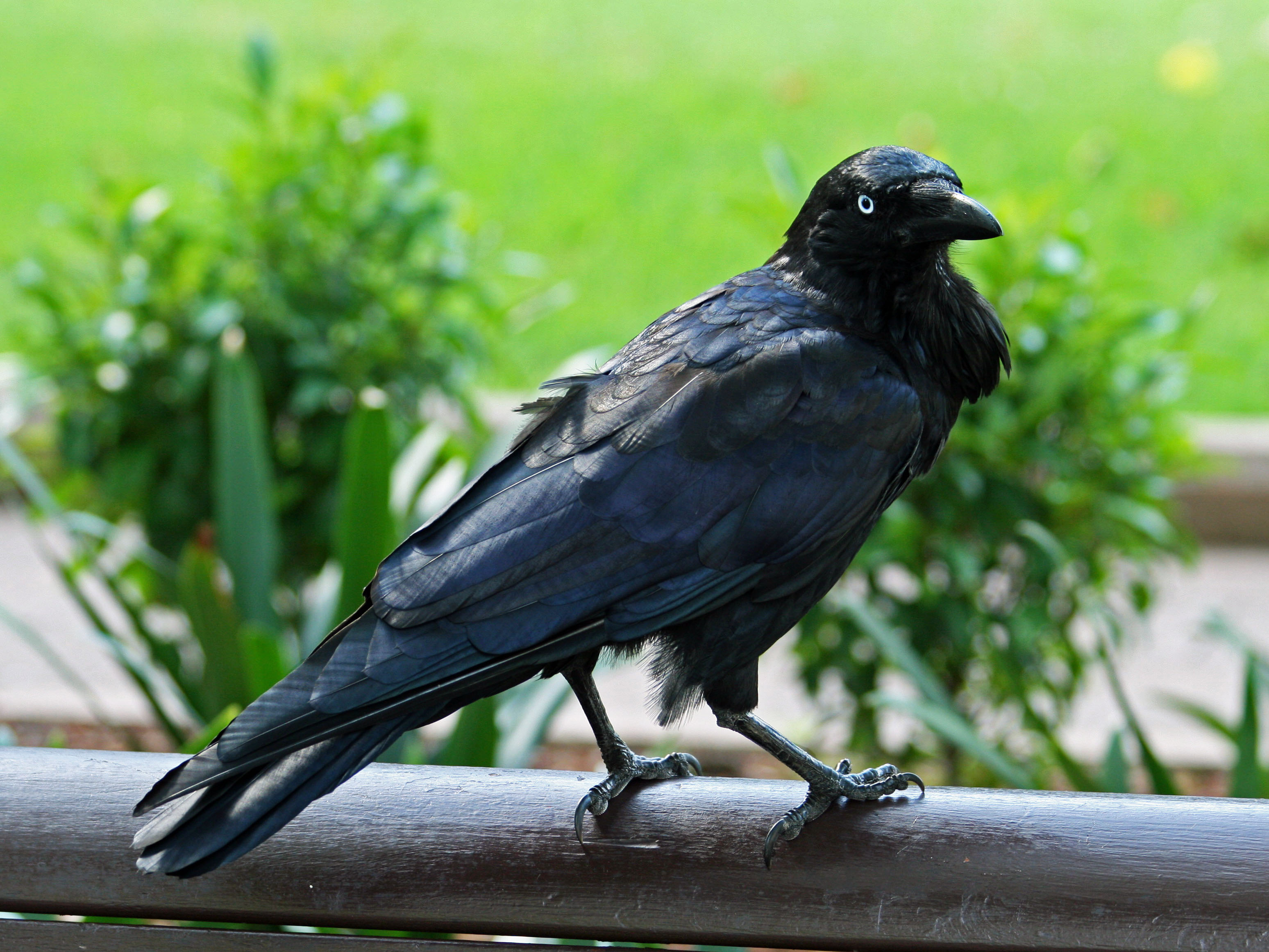
A raven is one of several larger- bodied members of the genus Corvus. These species do not form a single taxonomic group within the genus, but share similar characteristcs and appearances that generally separate them from other crows. The largest raven species are the common raven and the thick- billed raven. The term "raven" originally referred to the common raven, the type species of the genus Corvus, which has a larger distribution than any other species of Corvus, ranging over much of the Norton Hemisphere.
From Wikipedia, the free encyclopedia
Omen.

An omen (also called portent or presage) is a phenomenon that is believed to foretell the future, often signifying the advent of change. People in the ancient times believed that omens lie with a divine message from their gods. These omens include natural phenomena, for example an eclipse, freak births of animals and humans and behavior of the sacrificial lamb on its way to the slaughter. They had specialists, the diviners, to interpret these omens. They would also use an artificial method, for example, a clay model of a sheep liver, to communicate with their gods in time of crisis. Though the word "omen" is usually devoid of reference to the change's nature, hence being possibly either "good" or "bad," the term is more often used in a foreboding sense, as with word "ominous".
From Wikipedia, the free encyclopedia
Scarecrow.
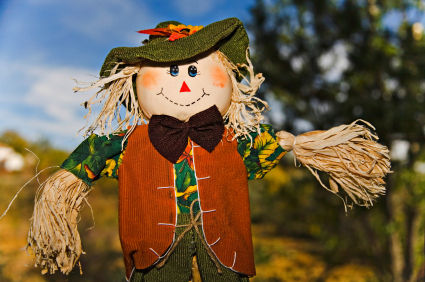
A scarecrow or hay-man is a decoy or mannequin in the shape of a human. It is usually dressed in old clothes and placed in open fields to discourage birds such as crows or sparrows from disturbing and feeding on recently cast seed and growing crops. Machinery of various kinds, such as wind- mills in miniature, horse rattles, etc., to be put in motion by the wind, are often employed to frighten crows; but with all these they soon become familiar, when they cease to be of any use whatever. The most effectual method of banishing them from a field, as far as experience goes, is to combine with one or other of the scarecrows in vogue the frequent use of the musket.
From Wikipedia, the free encyclopedia
Dove Olive.

Dove, usually white in color, are used in a variety of settings as symbols of love, peace or as messengers. Doves appear in the symbolism of Judaism, Christianity and Paganism, and of both military and pacifist groups. A number of peace symbols have been used many ways in various cultures and contexts. The dove and olive branch was used symbolically by early Christians and then eventually became a secular peace symbol, popularized by Pablo Picasso after World War 2. In the 1950s the "peace sign", as it is known today, was designed as the logo for the British Campaign for Nuclear Disarmament and adopted by anti- war and counterculture activists in the United States and elsewhere.
From Wikipedia, the free encyclopedia
Vocabulary.
1. Tone: 語氣;色調;音調
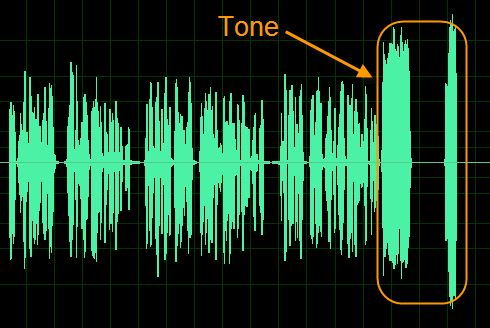
2. Franchise: 特權;公民權;經銷權

3. Fragile: 脆的;易碎的
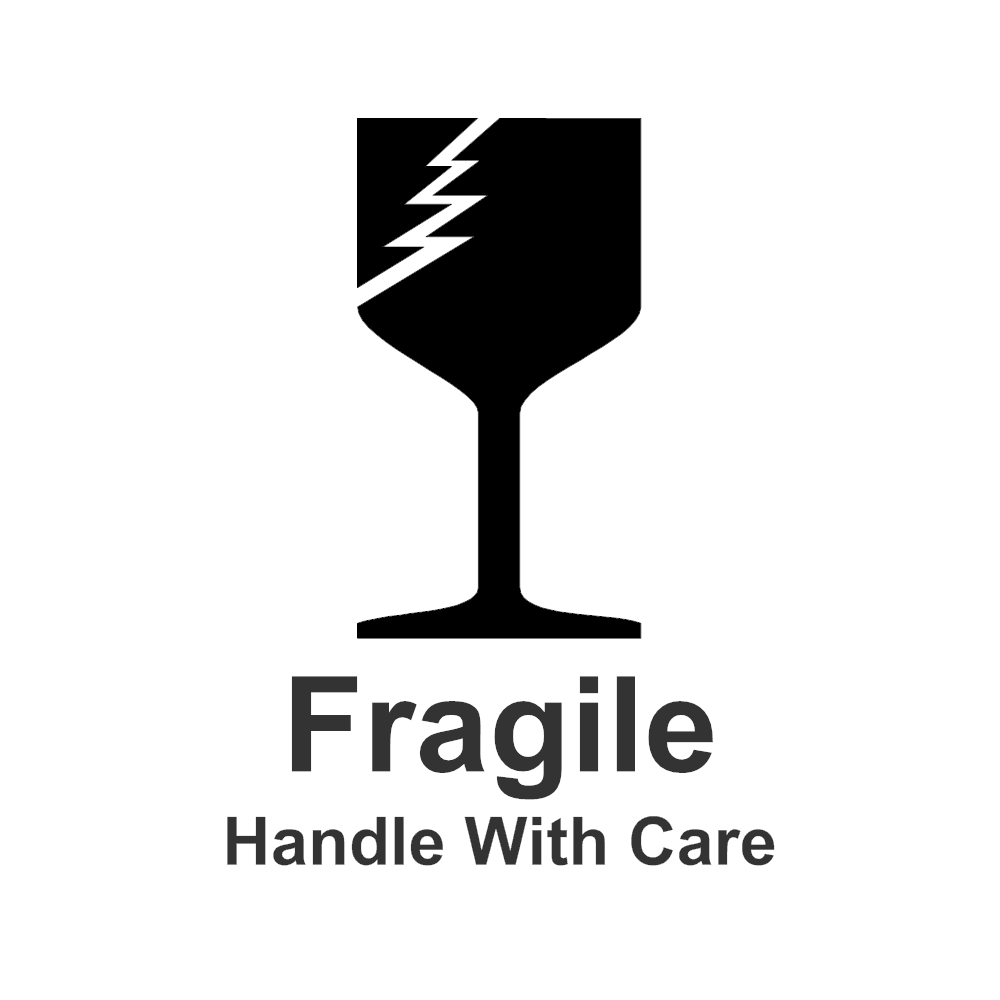
4. Sestet: 六重唱曲;六行詩節

5. Iambic Pentameter: 抑揚格五音步

6. Dactyl: 強弱弱格 (希臘. 拉丁詩歌),長短短長(英國詩 歌)

7. Trigonometry: 三角法;三角學

8. Astronomy: 天文學

9. Nominate: 提名,推薦;指定

10. Personification: 人格化;【修辭學】擬人法

11. Figure of Speech: 比喻修辭手段;修辭學
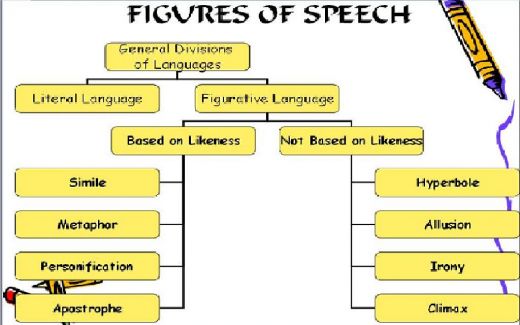
12. Description: 記敘,敘述,描寫;記載
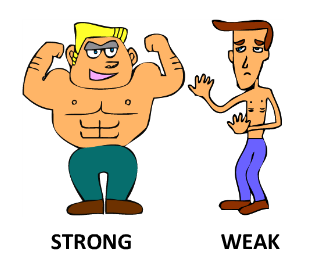
13. Prescription: 【醫學】藥方,處方
【法律】(依據傳統或長期使用等而)要求 權利

14. Proscription: 公權剝奪,禁止;放逐;【古羅馬】宣佈... 為公敵的公告

15.Daffodils: 洋水仙

16. Free Verse: (不受格律約束的)自由詩

17. Sarcasm: 諷刺,譏諷,挖苦

沒有留言:
張貼留言